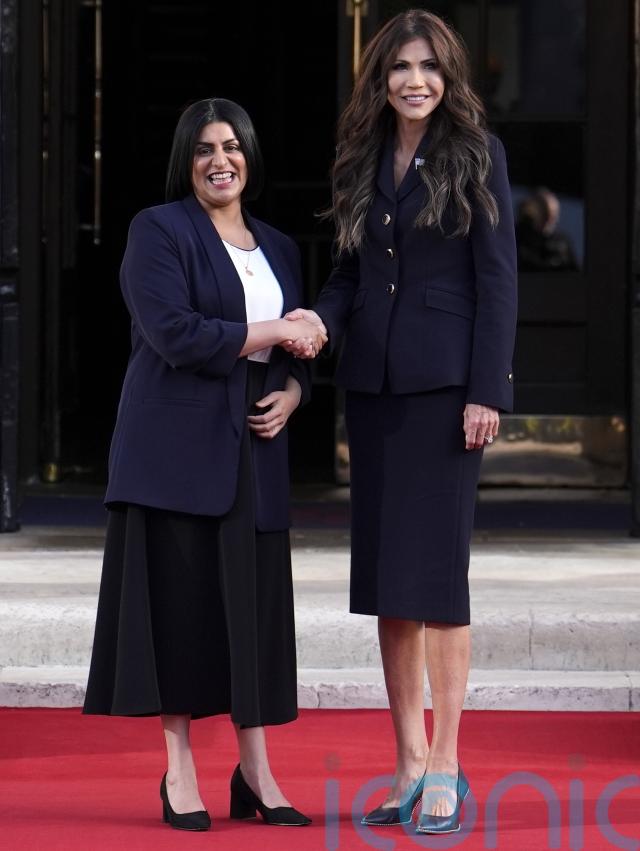
Home Secretary Shabana Mahmood has met counterparts from the Five Eyes intelligence-sharing alliance for talks on international efforts to tackle smuggling gangs.
In her first major engagement as Home Secretary, Ms Mahmood hosted counterparts from the US, Australia, Canada and New Zealand in London after the number of small boat crossings reached more than 30,000 in 2025.
Ministers are examining using military bases to house asylum seekers in “temporary but adequate” accommodation as Sir Keir Starmer tries to get a grip on the migrants crisis.
Some 1,097 people arrived in the UK in 17 boats on Saturday, bringing the total in 2025 so far to 30,100 – a record for this point in a year.

The figure is 37% up on this point last year (22,028) and also 37% higher than at this stage in 2023 (21,918), according to PA news agency analysis.
Ms Mahmood said the numbers were “utterly unacceptable” and that she expected migrant returns under a deal agreed last month with France to begin “imminently”.
Ahead of Monday’s meeting, she said the Five Eyes intelligence-sharing pact would “agree new measures to protect our border, hitting people smugglers hard”.
She was joined at the talks by US secretary of homeland security Kristi Noem, Canadian public safety minister Gary Anandasangaree, Australian home affairs minister Tony Burke and New Zealand minister Judith Collins.
The group was also discussing new measures to tackle child sexual abuse online and the spread of deadly synthetic opioids.
Sir Keir carried out a major reshuffle over the weekend, including wide-ranging changes at the Home Office, in a bid to draw a line under the fallout from Angela Rayner’s resignation and a difficult summer dominated by criticism of the small boats crisis.
The Prime Minister has told his new-look Cabinet to “go up a gear” in delivering on Labour’s agenda, part of which now involves a toughened immigration policy as he faces pressure in the polls from Nigel Farage’s Reform UK.
The Government is now considering using defence sites as temporary asylum accommodation as ministers seek to speed up plans to end the use of hotels after they became a focal point for demonstrations in recent weeks.
Defence minister Luke Pollard said bases with existing housing blocks or large areas of hard standing which could be used for temporary accommodation would be considered, along with non-military sites.
He told ITV’s Good Morning Britain: “We’ve deployed a military planning team into Border Security Command and the Home Office to look at military and non-military sites, about where we can help build temporary but adequate accommodation that enables us to transfer those folks from asylum hotels into that temporary accommodation so we can close even more hotels.
“We’ve closed 25 in the last year, but the Prime Minister is clear he wants every single one of them closed.”
He added: “The Ministry of Defence has expertise that no other Government department has and so that’s precisely why we’re using the military planners – those experts that delivered so much of the additional support during Covid, for instance, that respond to emergencies nationwide – we’re using those skilled people to support this effort, and certainly getting on top of this issue is a Government priority.”
Campaigners criticised the move to expand the use of military sites, saying the policy had been a failure.
“The solution is faster, fairer decisions and safe housing in communities, so refugees can work, study and rebuild their lives,” Enver Solomon, chief executive of the Refugee Council, said.
Subscribe or register today to discover more from DonegalLive.ie
Buy the e-paper of the Donegal Democrat, Donegal People's Press, Donegal Post and Inish Times here for instant access to Donegal's premier news titles.
Keep up with the latest news from Donegal with our daily newsletter featuring the most important stories of the day delivered to your inbox every evening at 5pm.